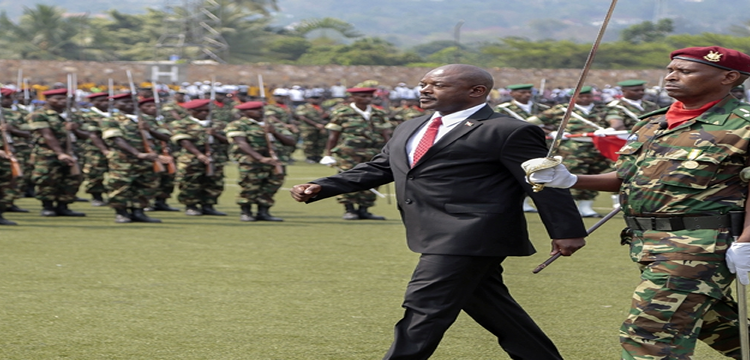Members of Burundi’s ruling party’s youth league, the Imbonerakure, have repeatedly gang-raped women since a wave of political protests began in 2015.
Many of the rapes appear to have been aimed at family members of perceived government opponents. Some of them were tied up and raped at gun or knife point, as their families and children watched, it added.
According to Human Rights Watch, most of the rapes on Imbonerakure, the youth wing of the ruling party, and the security forces.
“Attackers from Burundi’s ruling party youth league tied up, brutally beat, and gang-raped women, often with their children nearby,” said Skye Wheeler, women’s rights emergencies researcher at Human Rights Watch.
Human Rights Watch interviewed more than 70 rape victims in May 2016, in the Nduta refugee camp in western Tanzania. Nduta is one of three Tanzanian camps sheltering 140,000 Burundian refugees.
Dozens of women said they were raped in or close to their homes. Fourteen said they recognised at least one of the attackers as an Imbonerakure. In some other cases, they said the rapists wore police uniforms. In other cases, they could not determine who the attackers were.
A 36-year-old woman said she was raped in the Mutakura neighborhood of Bujumbura, the capital, in October 2015: “I was held by the arms and legs. [An attacker] said: ‘Let’s kill her, she is an [opposition National Liberation Forces] FNL wife’ as they raped me.”
Three Imbonerakure raped her, she said, one of whom she said she recognised from his patrols in the neighborhood. Imbonerakure had verbally harassed her husband, an FNL member, during visits to their home on several occasions before the attack during which the men took him away. His body was found in a nearby ditch the following day. Like many others Human Rights Watch interviewed, the victim said she still has trouble sleeping and has flashbacks of the attack.
Imbonerakure played a key role in helping President Pierre Nkurunziza remain in power following his decision in April 2015 to seek re-election.
He survived a coup attempt and mass protests and won subsequent elections. At least 439 people were killed and 240,000 fled to neighbouring states during the unrest, according to the UN.
HRW said that 323 cases of rape or sexual assault, affecting 264 women and 59 girls, were reported from May to September 2015.
Meanwhile, hundreds of Burundians took to the streets to protest against a UN decision to send a police contingent to monitor the security and human rights situation in the country.
The demonstration came a day after the UN Security Council agreed to deploy up to 228 police personnel to Bujumbura, and throughout Burundi, for an initial period of a year.
The UN needs approval from Burundi’s government to send the police force.
-Human Rights Watch







